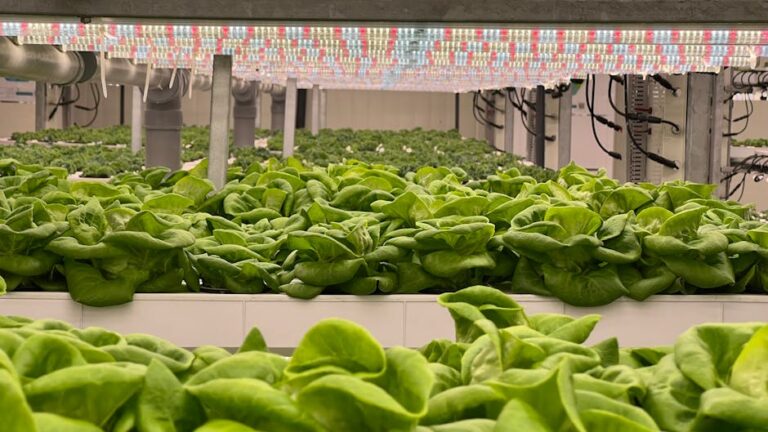
Imagine a world where the batteries powering our devices decompose naturally, leaving behind no trace. As Africa increasingly embraces renewable energy, there’s growing interest in innovative solutions like biodegradable batteries. These sustainable energy alternatives could be the game-changer Africa needs, reducing e-waste and promoting eco-friendly energy consumption. The introduction of biodegradable batteries, which use organic materials instead of toxic chemicals, offers a clean, sustainable energy source uniquely suited to the continent’s needs. So, how exactly could these green batteries revolutionize energy in Africa?
Why Biodegradable Batteries Are Essential for Africa
Africa’s energy needs are expanding rapidly as both population and urbanization soar. Yet, traditional batteries are problematic due to environmental concerns, hazardous waste, and high costs. Biodegradable batteries offer a solution by providing a clean, sustainable power source that naturally breaks down in the environment. This is especially important in Africa, where improper disposal of conventional batteries exacerbates pollution and public health issues.
Using biodegradable batteries could help mitigate the environmental impact of energy storage on the continent. Traditional lithium-ion and lead-acid batteries pose several challenges: they require resource-intensive mining, release toxins when improperly disposed of, and are often expensive to recycle. However, batteries that decompose naturally, (made from organic materials such as cellulose, lignin, and other bio-derived components) promise a cleaner and more affordable alternative.
Key Benefits of Biodegradable Batteries for Sustainable Development
For Africa, biodegradable batteries aren’t just about green energy; they offer a host of practical advantages that support sustainable development goals:
- Reduced Environmental Impact: Traditional batteries contribute to pollution and harm ecosystems when discarded improperly. Biodegradable batteries, however, safely decompose, leaving no harmful residues.
- Job Creation in Local Bio-Materials Industry: By focusing on locally-sourced organic materials, Africa could foster a burgeoning industry around bio-materials, creating jobs and strengthening local economies.
- Energy Access for Remote Areas: Many biodegradable battery designs are affordable, easy to produce, and don’t require extensive infrastructure, making them ideal for off-grid and rural regions across Africa.
Examples of Biodegradable Battery Initiatives in Africa
While biodegradable batteries are still a relatively new technology, some exciting projects and research initiatives are gaining traction across the continent. Take, for instance, the work of researchers at the University of the Witwatersrand in South Africa. They are developing biodegradable supercapacitors made from locally available organic materials. Their goal is to create a sustainable and affordable energy storage option that can eventually replace traditional batteries in small devices.
Another remarkable example is the collaboration between Kenya’s Strathmore University and Swiss researchers, which explores biodegradable battery applications for solar energy systems. These batteries, designed to store excess energy generated from solar panels, provide clean, sustainable power at night or during cloudy days, making solar energy more reliable in Kenya’s rural areas. Both examples show how partnerships between African and global institutions are paving the way for practical applications of biodegradable batteries in real-life settings.
Challenges to Overcome for Widespread Adoption
Despite their benefits, these batteries face significant hurdles in terms of technology and adoption. First, there’s the issue of capacity. Most biodegradable batteries currently have lower energy densities compared to lithium-ion alternatives, meaning they may not yet be suitable for high-demand applications like electric vehicles. Cost is another barrier. While the materials themselves may be affordable, scaling production to make biodegradable batteries mainstream will require substantial investment in research and infrastructure.
Lack of awareness and infrastructure poses a challenge. In many African regions, people are still unfamiliar with the concept of biodegradable batteries, and setting up a supply chain for bio-materials isn’t easy. It requires investments in education, training, and facilities that can process and produce organic battery materials.
Looking Ahead: How Biodegradable Batteries Could Shape Africa’s Future
Despite these challenges, the future looks promising. African governments, alongside private sector players, are increasingly focused on renewable energy and sustainable technologies, making biodegradable batteries a prime candidate for future energy projects. A unique opportunity lies in community-driven initiatives. By involving local communities in the production of bio-materials, biodegradable batteries could empower these regions economically while fostering a sense of ownership and environmental responsibility.
Imagine the impact of small-scale biodegradable battery production units in rural Africa, where locals could harvest raw materials and produce eco-friendly batteries on-site. This vision aligns with Africa’s broader goals of self-sufficiency and sustainability, helping reduce dependence on imported, polluting technologies. Some rural cooperatives in Ghana and Nigeria are even piloting initiatives where agricultural waste is transformed into materials suitable for biodegradable energy storage devices.
These batteries offer a compelling pathway toward sustainable energy in Africa. By reducing e-waste, supporting local economies, and increasing energy access, these batteries could play a critical role in shaping Africa’s green future. While challenges remain, the benefits of embracing this eco-friendly technology are too significant to overlook. As more research and partnerships emerge, biodegradable batteries may soon become an essential part of Africa’s energy landscape, powering a cleaner, greener tomorrow.
Discover more from Amebo Media
Subscribe now to keep reading and get access to the full archive.




